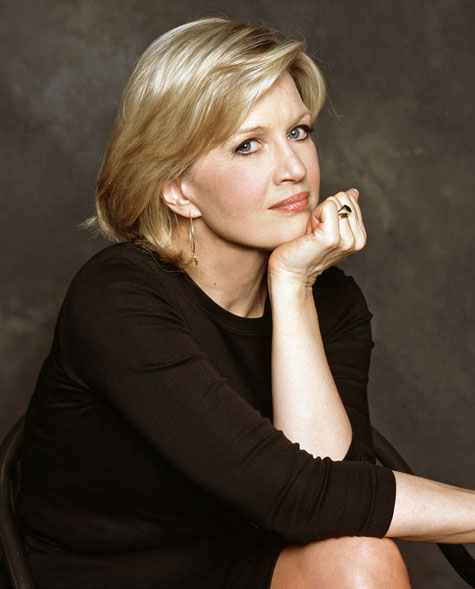
HER TIME Sawyer. |
The sight of Barack Obama in the White House has, rather quickly, taken on the air of the ordinary.
Partisan passions over health care and stimulus spending have replaced much of the wonderment over the elevation of a black man to the presidency. And that, of course, is how it should be.
But there is, nonetheless, something remarkable about the American embrace of a new voice of authority. Something other than white and male.
And we got another sense for the shifting landscape in recent days with word that Diane Sawyer will succeed Charles Gibson as anchor of ABC's World News when he retires in January.
Sawyer's ascension means that two of the three network broadcasts will be anchored by women, with Katie Couric leading the CBS broadcast and Brian Williams at the helm at NBC.
The evening news, like much of the traditional media, does not have the stature it once did. But the network anchors are still the nation's most recognizable journalists. The trio is the closest thing the American press has to a voice of authority. And that voice is changing.
Sawyer's rise has not inspired the hubbub that came with Couric's breakthrough. And that's understandable. A first is news. A second, not so much.
But Sawyer's triumph is, in some ways, more encouraging. Couric's ascension was inevitably colored with a sense of novelty. The changing of the guard at ABC suggests a more permanent pattern: a woman who works hard and pays her dues can scale the media heights.
That, of course, is how it should be.
"Naturally, I think it's a great move for Diane Sawyer," said Allison Alexander, an anchor with ABC6 News in Providence. But "let's be clear: she got this job not because she's a woman, but because she's an outstanding journalist who shines on the screen."
Patrice Wood, a long-serving anchor at WJAR, had a similar reaction. "When I heard about Diane Sawyer being promoted to solo evening news anchor, gender actually didn't even come to mind," she said.
It's a perspective long in the making.
Women have played a central role in local television news for decades. Wood and Karen Adams of WPRI are household names in Rhode Island. But as Lisa Churchville, general manager at WJAR notes, it takes time to build the credentials for the top-rung national jobs.
"When you think about how long it takes to acquire the stature to become [a network news] anchor, it isn't unusual that it would take awhile," she said.
Indeed, Sawyer's path took her from local television in Louisville, Kentucky, to a spot as the first woman correspondent on 60 Minutes, and stints with Primetime Live and Good Morning America.
"It was her time, in my judgment," said ABC News president David Westin, speaking to the Los Angeles Times.
Her time, indeed.